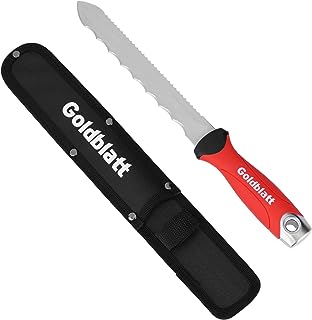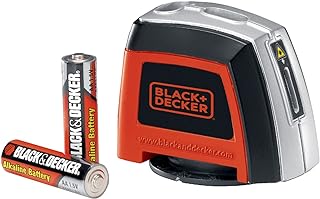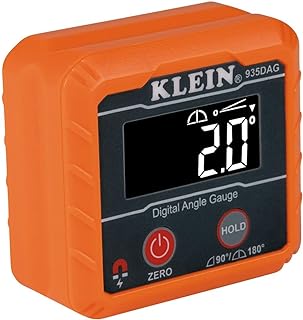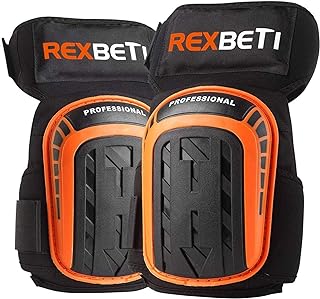5 important factors worth considering when looking for the best measuring tool for angles
Choosing the right angle measuring tool is important for accurate and efficient projects. You should think about factors like precision, durability, ease of use, and extra features. Understanding these aspects will help you make a smart choice that fits your needs and gives you good results when measuring angles.
See our guide to the best measuring tool for angles.
Accuracy
Accuracy is the most important factor to consider when buying measuring tools for angles. A high-quality angle measuring tool can improve the precision of your work, whether you are a professional or DIY enthusiast. The accuracy of your measurements can impact the outcome of your projects and save you time and effort in the long run. It is essential to choose a measuring tool that provides precise and reliable angle readings.
Investing in a well-known brand that is recognized for producing accurate measuring tools may cost more, but the guarantee of precise measurements is worth it. Cheaper options may be tempting, but they often lack the necessary precision for accurate angle measurements. By choosing a measuring tool with a reputation for accuracy, you can ensure that your projects are completed with precision and attention to detail. Remember, accuracy is crucial when measuring angles.
Durability
When buying tools to measure angles, it’s important to prioritize durability. A sturdy and long-lasting angle measuring tool not only helps you work accurately, but also gives you confidence in your work. While durable tools may cost more upfront, they offer precision and longevity that make them worth the investment. Whether you’re a professional or a DIY enthusiast, having a reliable angle measuring tool can improve the quality of your projects and make your work more efficient.
Choosing a durable angle measuring tool is about more than just finding something that can handle wear and tear – it’s about making a wise investment that will last for years. Look for tools made from strong materials like stainless steel or aluminum, as these materials are resilient and resistant to corrosion. Pay attention to the tool’s design and construction to ensure it can handle frequent use without losing accuracy. Accuracy and reliability in angle measurements are crucial, so prioritize durability when selecting your measuring tool.
Ease of use
When you’re looking to buy tools for measuring angles, it’s important to think about how easy they are to use. Being able to quickly and accurately measure angles can make a big difference in how well a project turns out. Choosing a tool that is simple and easy to use not only saves time but also makes sure that measurements are accurate. Whether you’re a professional or just starting out with DIY projects, having a measuring tool that makes things easier can really help.
An angle measuring tool that is easy to read, adjust, and handle can make tasks easier and reduce mistakes. Having a design that is user-friendly can improve how work flows and make you more productive, so you can focus on the job instead of struggling with complicated tools. Plus, a tool that is intuitive can give users more confidence, helping them do projects with accuracy and ease. Deciding to invest in a measuring tool that emphasizes ease of use isn’t just about convenience – it’s a smart choice that can improve the quality of your work.
Range of measurement
When you’re buying tools to measure angles, the range of measurement is really important. If you choose a tool with a limited range, it might seem like a good deal at first. But it can make it hard to work with different angles accurately. Buying a tool with a wide range is a better choice because it gives you more flexibility. It can handle a variety of projects and tasks well. You should think about how you’ll use the tool and make sure it can measure both small and large angles. This will help you make a smart choice that will be useful for a long time.
Having a wider range of measurement means you won’t have to switch tools constantly when you’re measuring complex angles. This saves time and makes tasks easier. By choosing a tool with a broad range, you can improve your work quality and feel confident taking on projects. The range of measurement is really important because it affects how well the tool works and how accurate your results will be. Don’t overlook this detail when choosing a measuring tool for angles.
Calibration and calibration options
When buying tools to measure angles, calibration is key for accuracy. Choosing a device with precise calibration can mean the difference between getting the right measurements and dealing with mistakes. In a world where being exact is crucial, having angle measuring tools that are well-calibrated is essential, not just an extra feature. Investing in a high-quality tool with reliable calibration not only ensures your data is accurate but also saves you time by reducing the need for constant checking and adjustments.
With so many options on the market, picking a measuring tool with versatile calibration choices is a smart way to increase efficiency. These calibration options let users adjust the accuracy of their tools to fit specific needs easily. As technology advances quickly, the calibration choices in measuring tools give us a glimpse of the future of precision and customization. Embracing this aspect of calibration not only improves the user experience but also gives users a sense of control and independence in angle measurement.
Conclusion
In today’s world, it’s crucial to have a reliable tool for measuring angles accurately. Whether you’re working in construction, engineering, or math, getting the right angle measurements is key to making sure your project is a success. Modern angle measuring tools use advanced technology and smart design to make measuring angles easier and more precise. Using these tools can help make your work more efficient and accurate, setting a higher standard for measuring angles. Want more info on fhm philippines, check the best fhm philippines.



